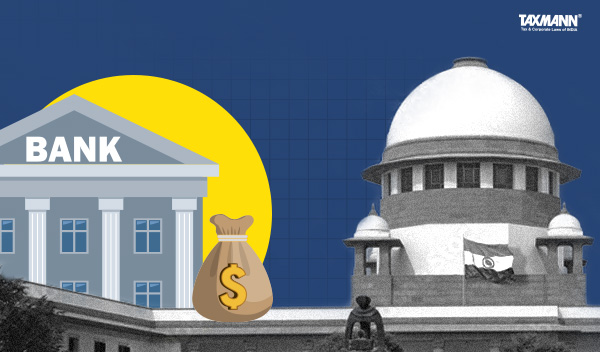Money in Bank Accounts is a Property Liable for Provisional Attachment u/s 281B | HC
- News|Blog|Income Tax|
- 2 Min Read
- By Taxmann
- |
- Last Updated on 19 February, 2025

Case Details: Assistant Commissioner of Income-tax vs. Mohammed Salih - [2025] 171 taxmann.com 23 (Kerala)
Judiciary and Counsel Details
- Sathish Ninan & Mrs Shoba Annamma Eapen, JJ.
-
Navaneeth N. Nath, CGC Susie B. Varghese & Jose Joseph, SC for the Appellant.
-
Gopikrishnan Nambiar, M.K. John Mathai, Joson Manavalan, Kuryan Thomas, Paulose C. Abraham & Raja Kannan for the Respondent.
Facts of the Case
The police seized a huge amount of cash from a car in which the assessee was riding. After recording reason to believe that income chargeable to tax had escaped assessment, proceedings were initiated in relation to the same by the issuance of notice under Section 148.
The expected demand on assessment, including penalty, would be a substantial amount exceeding two crores. The competent authority of the Department ordered provisional attachment of the Bank accounts of the assessee under section 281B.
The matter reached the Kerala High Court.
High Court Held
The High Court held that the word ‘property’ is a word of very wide connotation. It is relevant to note that section 281B(1) provides for the provisional attachment of ‘any property’. The prefix ‘any’ to the word ‘property’ has much significance. It indicates that the word ‘property’ occurring therein is not to be comprehended in a restricted sense.
Therefore, ‘any property’ mentioned in section 281B(1) would take within its sweep, money lying in the bank account also. Section 281B(1) provides for the provisional attachment of any property belonging to the assessee in the manner provided in the Second Schedule to the Act. The Second Schedule to the Act is titled, ‘Procedure for Recovery of Tax’. Evidently, except for the property exempted from attachment under the Code of Civil Procedure, 1908 (CPC), other properties are liable to attachment.
Section 60 CPC provides the property liable to attachment. Noticeably, section 60(1) CPC specifically states that money is an attachable property. Properties that are not liable to attachment have been specified in the proviso to the section. Therefore, money in a bank account is property liable to attachment.
There could be instances where the assessee does not own immovable property sufficient enough to secure the likely demand, but there are sufficient funds in the bank account. The power for provisional attachment is provided to protect the interest of the revenue. There is no warrant to hold that money lying in a bank account is not liable to attachment.
List of Cases Reviewed
- Jilubhai Nanbhai Khachar and Ors. v. State of Gujarat and Ors. AIR (1995 SC 142) (para 9)
- V. Prakashan and K.P. Pankajakshan and Anothe r (1985 CriLJ 951) (para 14)
- Radha Krishnan Industries v. State of Himachal Pradesh [2021 (6) SCC 771 (para 15)
- Gandhi Trading v. Assistant Commissioner of Income-Tax and others (1999 SCC Online 967) (para 17) followed.
- Order of Writ Court in WP(C) no. 9607 OF 2024 dated 13.08.2024 reversed.
Disclaimer: The content/information published on the website is only for general information of the user and shall not be construed as legal advice. While the Taxmann has exercised reasonable efforts to ensure the veracity of information/content published, Taxmann shall be under no liability in any manner whatsoever for incorrect information, if any.

Taxmann Publications has a dedicated in-house Research & Editorial Team. This team consists of a team of Chartered Accountants, Company Secretaries, and Lawyers. This team works under the guidance and supervision of editor-in-chief Mr Rakesh Bhargava.
The Research and Editorial Team is responsible for developing reliable and accurate content for the readers. The team follows the six-sigma approach to achieve the benchmark of zero error in its publications and research platforms. The team ensures that the following publication guidelines are thoroughly followed while developing the content:
- The statutory material is obtained only from the authorized and reliable sources
- All the latest developments in the judicial and legislative fields are covered
- Prepare the analytical write-ups on current, controversial, and important issues to help the readers to understand the concept and its implications
- Every content published by Taxmann is complete, accurate and lucid
- All evidence-based statements are supported with proper reference to Section, Circular No., Notification No. or citations
- The golden rules of grammar, style and consistency are thoroughly followed
- Font and size that’s easy to read and remain consistent across all imprint and digital publications are applied



 CA | CS | CMA
CA | CS | CMA
